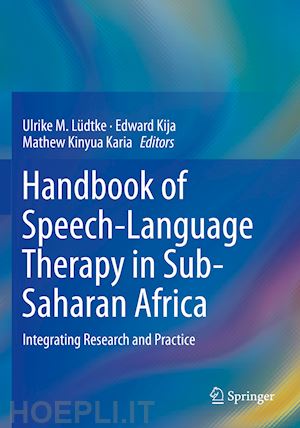Ulrike M. Lüdtke, Ph.D., is professor and the head of the Department of Speech-Language Pathology and Inclusive Education, the Leibniz Lab for Relational Communication Research, and the Speech Clinic at the Institute for Special Education at Leibniz University Hanover, Germany. From 2009 until 2011, she was dean of research at the Faculty of Humanities at Leibniz University. Her research focuses on language and emotion, development of digital tools for analysing language and communication (TALC), Relational models of language acquisition, international comparative speech-language pathology, language and communication development under diverse circumstances, and multilingualism. In a variety of different research projects, she cooperates internationally with universities, labs, and institutions in Paris, Edinburgh, the United States, India, and East and South Africa. Her last book publications have been on Emotion in Language (Benjamins, 2015) and on Speech-Language Therapy in Inclusive School Settings (Reinhardt, 2017).
Edward Kija, M.D., is a consultant paediatric neurologist and a senior lecturer at the Department of Paediatrics and Child Health of the Muhimbili University of Health and Allied Sciences (MUHAS) and Muhimbili National Hospital in Dar Es Salaam, Tanzania. He completed his undergraduate and postgraduate training at the University of Dar Es Salaam and MUHAS respectively. He subsequently received subspecialty training in Paediatric Neurology at the University of Cape Town, South Africa, and certified by the board of the College of Medicine of South Africa. His research and publications mainly focus on childhood onset epilepsy, neurodevelopment, autism, cerebral palsy, neurocutaneous conditions and stroke.
Mathew Kinyua Karia, Ph.D., is a lecturer at the Department of Early Childhood and Special Needs at Kenyatta University, Nairobi, Kenya. He teaches in the area of speech and languagepathology. He is one of the pioneers in training speech and language pathologist in Kenya. He is a consultant in the area of communication disorders with various hospitals in Kenya and internationally with organizations such as Operation Smile Inc., and Starkey Hearing Technologies. He holds a PhD (Cologne University, Germany) and a Master and a Bachelor degree ( Kenyatta University, Kenya). Dr. Karia’s research focuses on the area of speech production, communication disorders, hearing impairment as well as literacy.











